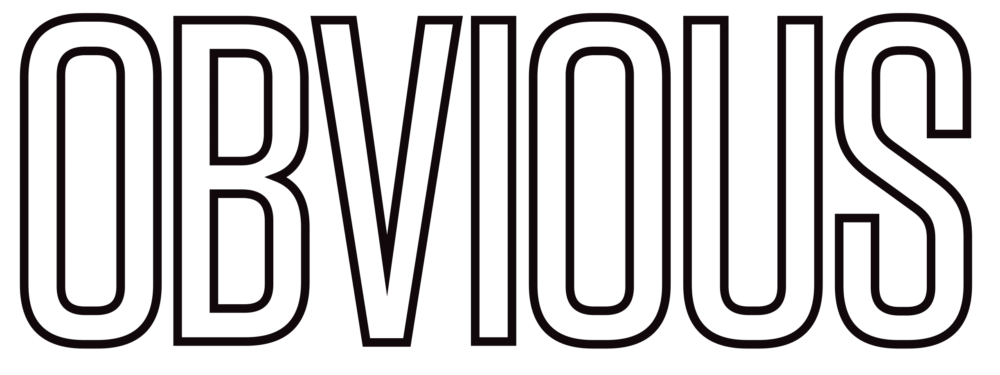We intended to highlight the 20/20 Visionaries-to-Watch featuring George M. Johnson much earlier in 2020, but we found it wise to hold the feature until it felt right to release.
When you think of the word vision, you almost immediately associate that word with sight, your sensory ability. It is something required to turn a thought into innovation. To have vision doesn’t specifically mean the ability to see something physically, but rather an intention or inclination to create change.
At the beginning of 2020, OBVIOUS had intentions of using our vision to create new stories, highlight new outlooks, and continue offering the cutting edge content that our viewers have grown to love over the years.
What started out as a promising new decade quickly turned into a dark age of disorder as COVID-19 became a global threat that altered all of our realities.
Amid the pandemic, the masks of American “justice” started to show themselves more clearly than ever before as an uprising from the Black Lives Matter movements called out the wrongful murders of George Floyd, Breonna Taylor, Ahmaud Arbery, and countless others at the hands of police brutality.
One thing was sure: It clouded our vision.
There needed to be some refocusing of what matters and what messaging #TeamOBVIOUS could provide to its audience that would resonate with something optimistic and hopeful.
The world has now spent more than half of the year enduring the stress of these trying times, yet we can still look towards the people making a difference as a means of inspiration.
There’s no doubt that the individuals selected in this article showcase a tenacity and touch of creativity that has shown the potential for greatness in their lives and for others.
They’ve used their heart and motivation to strive for change and create space for new generations to learn from them.
It is with great honor that OBVIOUS Magazine presents: The 2020 Visionaries To Watch.
20/20 Visionaries: George M. Johnson
What needs to change in the world of journalism that will make activists like yourself more effective at implementing social change?
George M. Johnson: The world of Journalism is still very much cisgender, white, and male-dominated. Because of this, most reporting is biased, and our stories are often being written, edited, or told by people who don’t look like us nor have any of our lived experience.
It’s not just about having more people of color in these newsrooms and on staff, it’s just as important as having the RIGHT people of color, specifically BLACK people who have a lens-shaped by queerness, feminism, and an identity of Blackness rooted in the totality of our various communities.
The world of journalism also needs to feature our stories when they are not trending. Just because something isn’t trending doesn’t mean it is something that we should not be talking about or discussing.
Black stories become everyone’s issue when they can get a click or alike, but who is talking about our plight and our joy when no one is watching?
George M. Johnson: Efforts like this make our stories be seen by more and, in turn, allow activists to do the work and enter spaces otherwise blocked off to us.
What thematic elements does your book, All Boys Aren’t Blue, discuss that bring light to LGBTQ+ issues?
George M. Johnson: From the cover of the book to the book title, light is already being shed on queerness. My book doesn’t take the easy approach to a lot of subjects. I went through many different things as a Black queer child, so it was vital for me to push myself and tell the total truth to help those who would be reading.
I discuss sexual assault, molestation, first kisses, internal discourse around sex and gender, first consensual sexual relationships, first queer friendships, and many of the things intersect with those experiences.
So, of course, I talked about racism, bullying, family dynamics, and how they come together to create our privileges and oppressions.
For me, it was essential to allow people into the developing mind of a Queer child, since many assume we aren’t old enough to understand what we are feeling. I was fully aware of what I was, even if I didn’t have the language to describe it. This book will be an entry point for many and a tool for others to know they are not alone in how they feel.
What words of encouragement would you give to the next generation that will follow in your footsteps?
George M. Johnson: Not allowing doubt and fear to consume you to the point that you forget who you are or what your purpose is. Change is created when we are most uncomfortable.
One of the biggest mistakes I made early on was living for others’ happiness while not being concerned about my own. Letting people’s momentary thoughts about me control the way I lived my entire life. I had to come to the realization that life is short but wide.
There is no time to waste suppressing who you are or worrying about how you will be seen by others and “accepted”. Only you wake up to you every morning and go to sleep as you every night. You have to be happy with that person in the mirror. You can only do that if the reflection is of the person you actually are, not who you are pretending to be.
How have you or your business had to pivot during this global pandemic?
George M. Johnson: I was in the middle of releasing my debut memoir on April 28, 2020. We originally had an event planned, a tour lined up around All Boys Aren’t Blue that we had to shift and make changes for.
A lot of my work had now become virtual. The launch was all virtual using technology like Zoom, FB Live, and Twitter Live to create an experience around my work. Working as a writer, it became tough because a lot of the coverage had moved to COVID-19.
I had to become smarter in the work that I do and expand into larger projects like copy editing and film/tv writing to allow myself to continue building upon what I had already created. I’ve also used this time to focus on me.
Focus on my spirit and my mental health as well as get needed rest. This has become a great time for healing in many ways and given me the space and time to heal old wounds and work on bad habits that needed to be changed.
Photo Credit: Sean Howard
View the entire 20/20 Visionaries List here.
Want the latest posts, offers, and exclusive content straight to your inbox? Subscribe to our newsletter and never miss out again. See more Culture.



